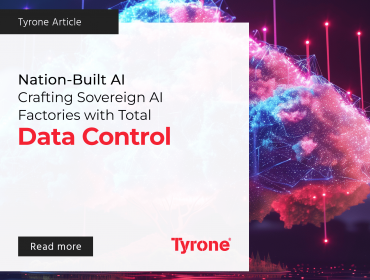In the pharmaceutical sector, artificial intelligence (AI) involves the use of algorithms, computer vision technologies, and automation to speed up processes that were previously handled by people. In recent years, the pharmaceutical and biotech industries have made significant investments in artificial intelligence. AI is playing a critical role in modernizing the pharmaceutical sector and bringing new treatments to market faster, from market research to drug development and cost management.
According to research done by the Massachusetts Institute of Technology (MIT), only around 14% of novel medications make it through clinical testing. Furthermore, the pharmaceutical business must pay billions of dollars to have the medicine approved by government authorities. Pharma businesses may boost their success rate by using artificial intelligence in pharmaceutical research and development. Clinical trial data is gathered and analyzed using AI and ML technologies to get insights into medicine and its effects on test subjects.
Positive and negative effects are carefully studied and analyzed to make the required adjustments to the drug’s composition. This will result in medications with more therapeutic potential and fewer negative effects.
To maintain R&D, the pharmaceutical sector requires billions of dollars. The corporation invests heavily at each stage to guarantee that the medicine is manufactured using high-quality components and in sanitary and sterile settings. The warehouse where inventory is stored should include a temperature control facility to ensure that the pharmaceuticals remain in their original composition.
Management can simplify the process from start to finish by using artificial intelligence software apps and connecting them with pharma firm infrastructure. This will cut operational expenses and maximize efficiency.
AI in Pharma Industry: The Transformation
Take a look at how machine learning and artificial intelligence are transforming the pharmaceutical sector and making it even better than before.
Supply Chain Management
Optimization of the supply chain has always been a difficulty for owners in the pharmaceutical industry. However, with the introduction of AI and ML, the process is becoming more fluid. They created big data to help firms in reaching out to prospective consumers and understand their demands, which in turn assures the number of pharmaceuticals produced by the companies.
Furthermore, predictive analytics insights provided by big data enable enterprises to forecast demand patterns and hence manufacture only the necessary number of medications. Drugs are increasingly being personalized for even small groups with specific genetic characteristics.
It is more difficult to find a method to provide a drug that is only relevant to a tiny group of 1000 individuals than it is to deliver medicines all across the world. This enterprise necessitates appropriate resource use to avoid supply delays and corporate losses.
This measure will not only ensure that drugs are delivered on time, but it will also eliminate the need for re-execution every time. Machine learning and AI algorithms can assist to automate and strengthen this procedure.
When it comes to shipping pharmaceuticals, many are pricey and require highly specialized conditions to be shipped.
Pharma businesses spend billions and trillions of dollars to deal with the shipping process. Pharma businesses will be able to estimate demand and deliver products more effectively with the use of ML and AI. Furthermore, many crucial choices will be automated, allowing businesses to reduce labour costs and increase profits.
Manufacturing Administration
Unlike other items, the production of pharmaceuticals needs extra care. Temperature, pressure, fermentation time, and so on must all be monitored to ensure that the vaccines/drugs produced fulfill market criteria and provide the required effects. If even one criterion is violated, the entire batch must be rejected, resulting in a significant financial and labour loss for the company.
Pharma businesses may use machine learning and artificial intelligence to determine the traits that may be causing medication deterioration.
As a result of these powerful analytics algorithms, the pharmaceutical sector can achieve stringent quality requirements while making zero compromises. Furthermore, data from past batches aids in understanding the important components that may have been responsible for drug production failure in earlier situations. This knowledge enables the company’s owners to guarantee that similar errors/mistakes do not occur in the future, thereby jeopardizing the drug’s quality.
Reshaping Research & Development
A medicine takes around 12 years to reach the market, during which time it goes through several procedures, including target discovery, drug formulation, and clinical testing. Identifying the target is what takes up most of the scientists’ time. Disease-causing organisms are constantly changing, and as a result, their genetic make-up changes. This makes it difficult for scientists to identify targets for which inhibitors must be developed.
Previously, scientists had to comb through a plethora of literary studies to detect trends and then develop a theory on which to base their research.
With the development of machine learning and artificial intelligence, scientists can recover the sequenced genes and compare them to identify conserved domains (potential targets). These projected targets can then be utilized to develop medications to counteract them.
All of the steps that used to take years of effort are now just a few mouse clicks away. This not only expedites the medication development process but also provides additional disease-related information. In the other direction, AI and ML may help firms forecast the chemical molecule that will be utilized against the projected targets.
Final Thoughts
Life expectancy and quality of life have undoubtedly increased after around 100 years of medical science developments. However, the pharmaceutical sector is now experiencing slow growth, most likely due to the increased quantity of products that must be created and sent to patients all over the world.
AI is mainly concerned with assisting the pharmaceutical business in improving its logistics and production components. They can assist enterprises in tracking their shipments and ensuring that medications reach the public on a schedule.
The specialists may also be able to help the pharmaceutical sector by analyzing all of their past data and forecasting the demand patterns for a certain drug before its creation.
All of these strategies will not only aid the pharmaceutical companies in producing high-quality medicines but also in effectively distributing them all over the world.












